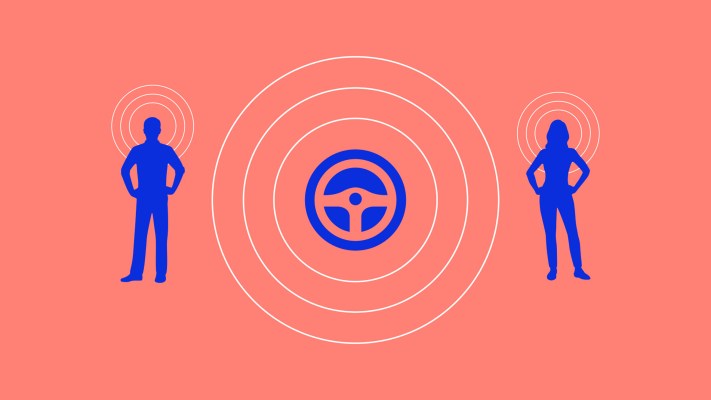
What does an electric vehicle sound like when it goes from 0 to 60, when it signals a turn, when it’s powered down for the night? EV motors have fewer parts and are therefore incredibly silent, which presents safety concerns for drivers who recognize speed by sound and pedestrians who can’t hear an approaching vehicle.
In 2019, regulators in Europe and the U.S. began requiring EVs to have warning sounds, but they left it up to the car manufacturers to choose those sounds. Many have taken the new legislation as an opportunity to not only create a branded sound, but also to stir up some marketing hype by enlisting famous musicians to compose the noise of an electric engine. Hans Zimmer created the Blade Runner-esque sound concept for BMW’s i4 electric sedan, and, strangely, Linkin Park is creating EV sounds for BMW.
Sound designer Yuri Suzuki, a partner at design consultancy firm Pentagram, recently conducted a research project into the crucial role electric car sound has on a user’s safety, enjoyability, communication and brand recognition, out of which he developed a range of car sounds. Suzuki says that while some automakers have chosen beautiful and interesting car sound designs, chasing celebrity clout is not the way to go when designing the sound behind serious machines.
“We really have to design carefully based on the psychological effects on a human,” Suzuki told TechCrunch. “It’s all about the relation between the human being and the machine itself.”
Suzuki says smart sound design can help ease the difference between human and car by providing a shared language. Based on surveys he conducted, Suzuki came up with two new skeuomorphic electric engine sounds as well as adaptive sounds that reflect the time of day and the location of the drive.
His engine sounds are reminiscent of internal combustion engine revs, providing both drivers and pedestrians with a recognizable indication of speed increasing and decreasing. The sounds are placed at different pitches: one quite low, like a spaceship taking off; the other a bit higher, like a hovercraft vertically ascending. Audi, Ford and Jaguar Land Rover have also chosen to make futuristic copies of gasoline engines for some of their new electric vehicles.
Suzuki’s sound design also includes in-car sounds, like powering on, turn signals or horn honking, that use AI to adapt to the time of day. In the morning, there’s a higher pitch and a sunnier energy to the sounds, which get progressively lower in pitch as the day wears on.
To make the sounds more customizable, Suzuki says he uses machine learning to help integrate the individual’s calendar so the sound can adapt to the type of activity the user is doing, from heading to work to running errands to going on a joyride. Video game-like sounds are activated whenever the driver arrives at their destination.
A lot of manufacturers allow the driver to choose the sounds their vehicle will make, but Suzuki doesn’t think that’s the best idea because people will likely choose what sounds coolest to them, not necessarily what is most useful. Not to mention what a strange cacophony of noises cities would sound like if everyone could choose their own sounds. It would be like when people started choosing their own cellphone ringtones, but on a larger, more anxiety-inducing scale.
“We suggest a pre-set sound that gradually changes as it shifts to your life and activity pattern,” he said. “Our AI can slowly adjust its sound to the driver’s behavior.”
Suzuki’s AI-based car sounds are designed so that they’re not repetitive. So if you’re on a long road trip, rather than constantly listening to the same sound, Suzuki’s sounds are capable of creating real-time generation of bespoke sounds, a task that’s nearly impossible for a human to do. He says the constantly progressing and shifting sounds use the same data as the original engine sound, but it can stretch for hours without repetition.
Pentagram hasn’t yet produced a commercial application for Suzuki’s sounds, as it is more interested in sharing its research with the EV and sound design communities, as well as finding the right automaker partner to develop this project further.
“There are no strong sound guidelines yet, so that’s something we’re interested in,” said Suzuki. “The first step for us is sharing the kinds of things we can do with AI and sound design.”






















